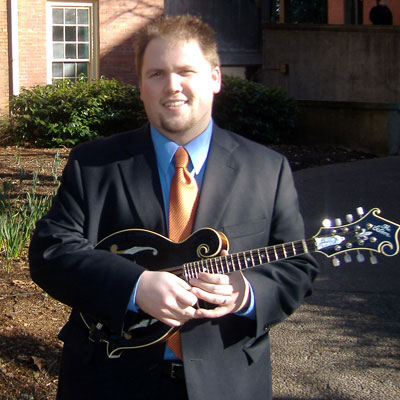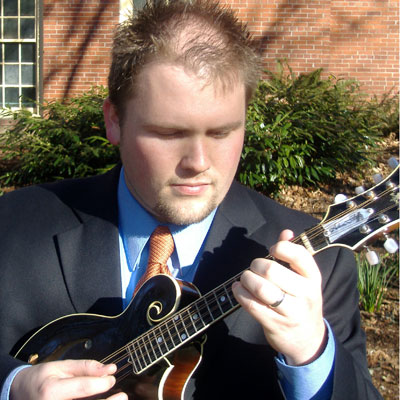
Sports
- The Outdoor Program helps people plan adventures.
- Adam Lake uses fencing to bring people together.
- Win or lose, the Pit Crew keeps Mac Court shaking for the Ducks.
- Tearing at jerseys and slamming into each other. It's women's rugby.
Changes
- A Taiwanese student finds adjusting to a foreign culture challenging.
- A close-up look at the ASUO president.
- A senior's abrupt transition to Eugene after Hurricane Katrina.
Arts
- A ballroom dance club president wears many hats and makes them too.
- Whether composing or jamming on his mandolin, Jesse Jones shares his love of music.
- Non-traditional African dance brings a new sense of community.
- The Student Fibers Guild proves that knitting isn't just for old ladies anymore.
- Halo Jones' music and art expresses his dark and light sides.
- A musician, student, activist and artist.
- For Ashley Maury, jewelry is more than decorative.
- A student TV show features news, sports, drama and comedy.
- A printmaking student goes beyond the studio and into the city.

Whether composing a fugue or jamming bluegrass-style on his mandolin, Jesse Jones is determined to share his love of music
By Matt Tiffany
When many 5-year-olds in the early '80s started their playtime, they would eagerly open the large cover of their Fisher Price record player and play some Sesame Street sing-along while they colored or stacked their blocks. When Jesse Jones popped open the near-opaque lid of his plastic record player, the excitement in him growing, he too put on a record, and the music would still resound within him more than two decades later, influencing his own musical career. As the rich harmonies of Rachmaninov or the pyrotechnic virtuosity of Van Cliburn filled the room, Jones found the perfect accompaniment to his playtime.
"I fell in love with recordings by Van Cliburn, especially, and when I heard him play on that Fisher Price record player, it made me want to play piano," Jones said. "He was so fiery."
From the moment his mother first began teaching him the intricacies of the piano, Jones, a composer and graduate student in the University of Oregon's School of Music and Dance, wanted to be a concert pianist. He got his first teacher when he was 7, and because he was home-schooled, Jones was able to play the piano all the time. But while Jones was moving toward his goal of being a master pianist. He didn't realize the scope of musical possibilities he was missing.
In 1995, however, Jones was forced to live without the piano for a while. An avid arm wrestler, a part of his life that Jones jokingly refers to as his "dual lifestyle," Jones broke his arm in a match and wound up in a cast.
"I was devastated, naturally, but it really opened me up to other forms of music. Because I was in a cast, I couldn't play piano, so my sister taught me how to play some guitar chords," Jones said. "It really opened me up to other forms of music and, in the end, turned out to be a real blessing, although I didn't think so at the time."
One other result of Jones' arm-wrestling accident was that it forced him to come out of his shell socially. When people asked him about what happened, he was forced to set aside his normal shyness and engage others. Later in 1995, Jones and his family moved from New Mexico to northeast Oregon, and Jones made another lifestyle change.

Jesse Jones, a graduate student in the University of Oregon's School of Music and Dance, wants to pursue a doctorate in music after he receives his master's degree. He hopes to teach composition in a university one day. |
Jones began attending Powder Valley High School in North Powder, Ore., when he was a junior. Even though he'd spent most of his life behind a piano, Jones eagerly participated in every musical endeavor available despite his limited options of school band and choir. His senior project was writing the school's fight song, which the school still uses today.
After high school, Jones attended Eastern Oregon University to receive a BA in music. Although the school is relatively small — its enrollment is just less than 3,500 — it offered Jones a wider array of musical outlets: jazz band, choir, fiddle ensemble.
"I participated in everything the school has to offer, basically," Jones said.
Now that Jones is a master's student at the University of Oregon, he has parlayed some of his relationships from Eastern Oregon into pieces. The music faculty commissioned Jones to compose a piece for one of its upcoming concerts, and he used a poem called "The Primes of May" by David Axelrod, Jones' English professor at Eastern Oregon, as part of an orchestral piece.
"The words are actually integrated in the piece. I was very specific about how and when they are spoken. Part of the music is different people doing different stanzas at different times to create a musical texture," Jones said.

Because Jones is studying Bach's compositions, he often plays them on the mandolin to get a different feel |
Even before Jones begins composing he's thinking about the way sounds work together and how he can integrate different instruments — sometimes instruments he's had minimal experience with — into his work.
"You listen to a CD and you think, 'Man, how'd they make that sound?' and then you figure out it's the clarinet, and you go and look up everything you know about the clarinet, and you talk to clarinet players. And then you can start composing.
"To be a really good composer, you must know everything you can about every instrument," Jones said.
One of Jones' passions is bluegrass music, and he often uses his favorite instrument — the mandolin — to compose his classical pieces. "For the piece I'm doing (for Eastern Oregon), I composed it all on the mandolin and guitar, then transferred the music to other instruments," Jones said. "Right now, in my composition class, I feel like I have to write a certain style for the concert hall," he said, folding his hands primly in his lap and bowing, "you know, the classical concert hall. But there's also a part of me where I'll sit down and play the mandolin a lot, and I'll come up with these cool licks. I feel that is composition as well." At some point, Jones wants to form a mandolin quartet. It's a medium that's not really been written for, he said, and it's something that is not exhausted like the string quartet or the brass quintet are.
|
When Jones was a student at Eastern Oregon, he met Luke McKern when they were both auditioning for the Jazz Ensemble. "I've never met a person where I've locked in so well with him immediately, rhythm-wise," Jones said. "Even stellar musicians have a different idea of where the beat lies, and it's hard to lock in with someone, but we did." Jones and McKern started composing guitar/mandolin duets, then started thinking of what a bass and drums could do to it. When Jack Niedermann brought his bass to the duo, String Helix was formed. Even though the band was a side project for Jones, the group had considerable commercial success. They released an album, "Hung the Moon," in 2004 and played on Garrison Keillor's Prairie Home Companion radio program and at the Sisters Folk Festival in Sisters, Ore. The band is on hiatus while McKern participates in rebuilding efforts in Katrina-ravaged New Orleans, but Jones said that he hopes to continue his bluegrass forays indefinitely. Music is in his blood — it has been since he was 5 — and he wants to continue composing and teaching music forever in as many ways he can.
"Music can penetrate deeper into somebody's soul than anything else," Jones said. "There are great things, like literature and art, that can really touch a person emotionally and change their lives forever, but even reading a great book or seeing a great piece of art can't touch you as deeply as music can. It's so intangible, yet so powerful, and I really think that music can help to heal the wounds of humanity. It can really change the world, and that's where I want to get to, to where my pieces can start doing that."